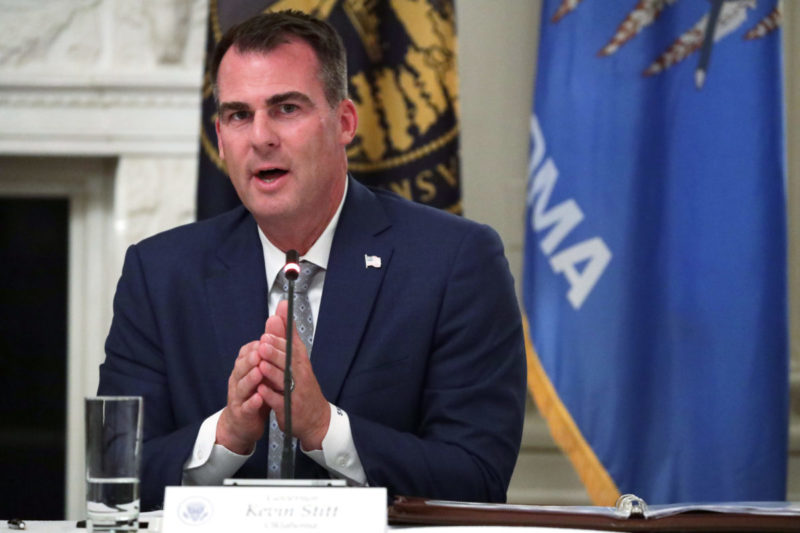Oklahoma Governor Is ‘Proud’ to Sign So Many Extreme Abortion Bans
Oklahoma Gov. Kevin Stitt spent this spring trying to make legal abortion effectively inaccessible in his state.

According to local news sources, Oklahoma Gov. Kevin Stitt has signed more anti-abortion bills into law this session than the state has seen in any of the last five years. He even posted on Facebook to say he’s “proud to be called the most pro-life governor.”
In April, the Republican governor signed a block of anti-abortion legislation that would make legal abortion effectively inaccessible in Oklahoma. Here’s a closer look at what’s in these bills that makes them so dangerous for access.
First up, Stitt signed HB 1102, which would revoke the medical license of any doctor who provides an abortion—classifying it as “unprofessional behavior”—unless it’s to protect the life or physical health of the pregnant person. This is as bad as it sounds, and it alone could effectively wipe out access in the state.
Stitt also signed HB 2441, a near-total abortion ban. The pre-viability abortion ban forces a doctor to test for a “fetal heartbeat” before providing an abortion, and bars them from providing abortion care if any embryonic cardiac activity is detected. This would effectively ban abortion around six weeks‘ gestation, before many people know they’re pregnant—and long before an embryo grows into a fetus and develops an actual heartbeat.
What’s more, any provider who does perform an abortion after that point can be charged with homicide under the bill. (There’s an exception for cases in which the pregnant person’s life or physical health is in danger, but no exemption for pregnancies resulting from rape or incest.)
But that’s not all. Stitt signed HB 1904, a law requiring all abortion providers in Oklahoma be board-certified in obstetrics and gynecology. Then he signed SB 918, a “trigger law” that will immediately make abortion illegal in the state if Roe v. Wade is overturned. And on May 28, a day after Oklahoma lawmakers wrapped up their legislative session, he signed two more abortion restrictions—SB 778 and SB 779—both aimed at regulating and limiting access to medication abortion.
Even before this recent deluge, Oklahoma had some of the most restrictive abortion laws in the country, making care difficult to access for many patients. And just last year—after trying to use the COVID-19 pandemic as a pretext to ban abortion care entirely—Stitt signed the “Unborn Person Wrongful Death Act” into law, which makes it easier for people to sue abortion providers; that’s a lot of potential for harm from a law that has an oxymoron right in the title.
The good news is these new Oklahoma laws are not scheduled to take effect until November 1, and advocates have promised legal challenges. The less good news is that patients and providers will once again have to rely on the courts to protect abortion access.
And if the Supreme Court rules that states do have the power to ban abortion before viability in the upcoming Dobbs v. Jackson Women’s Health Organization case, then these kinds of restrictions would be able to take effect.
This post was adapted from a Twitter thread.
